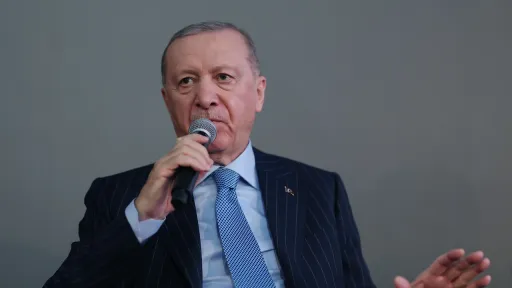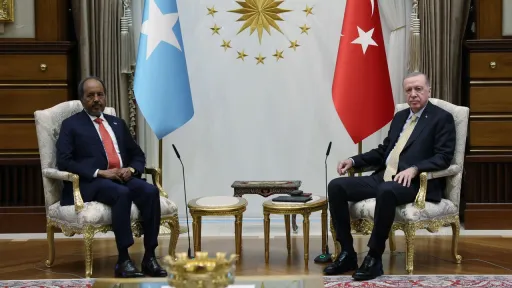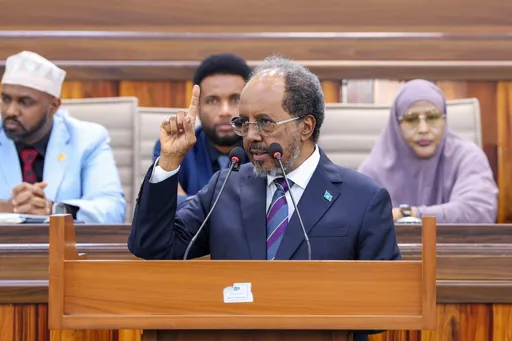By Sylvia Chebet
Young protestors early this week engaged police in running battles in Kenya's capital, Nairobi, in protests dubbed "Occupy Parliament, which have forced the government to backtrack on an ambitious plan to fund a four-trillion shilling (nearly $30 billion) budget through hiked taxes.
The youthful protestors feel Kenyans are already overtaxed and are angry at additional taxes proposed in the new budget.
"We reject the Finance Bill 2024. Why is it being pushed down our throats? We don't want it and it is final," Wanjira Anjira, a protestor stated.
Scores of demonstrators waved placards emblazoned: "Do not force the taxes on us", referring to President Ruto as Zakayo, the Swahili name for the biblical tax collector Zacchaeus.
The protests appeared spontaneous but were mobilized through social media. Once on the street, the young protesters wouldn't budge despite several arrests, amid chocking plumes of teargas.
A police report said one officer was seriously injured when a tear gas canister exploded in his hands.
Bread tax
"A lot of people find the taxes very punitive," governance expert Mohamed Guleid tells TRT Afrika, saying a good example is the proposed taxation of 16% VAT on bread.
"And you know what bread means, not only in Kenya, but across the world. You know that bread has brought down governments. If you remember, the French revolution that brought down King Louis XVI was caused by bread," Guleid notes.
On Tuesday, the black-clad protestors engaged the police in a cat-and-mouse chase around parliament buildings in the capital.
Meanwhile MPs reported receiving an avalanche of messages on their phones, pleading and threatening them in the same breath to stand with the demonstrators.
"I don't know where Kenyans got our contacts, almost every member of parliament has received a message to reject whatever comes to the floor of the house." Mandera East MP, Hussein Weytan said.
The Kenyan government is between a rock and a hard place. To finance the country's biggest budget, it faces two choices: borrow more or impose more taxes.
It has opted for more taxation.
Necessary measure
The government defended the hikes - which were projected to raise some 346.7 billion shillings ($2.7 billion), as a necessary measure to cut reliance on external borrowing.
However, "sometimes when government touches on such basic needs of the people, it may look very cruel," said Guleid, also a former deputy governor notes.
In the end, it is the government that blinked first, dropping a raft of taxes even before parliament convened for the first reading of the Finance Bill 2024.
Members of Parliament were due to debate the bill on Tuesday afternoon but postponed the discussion to Wednesday, just before the presidency announced amendments to the proposed taxes following recommendations made by a parliamentary committee.
"Because the people's representatives have listened to the people... they have adjusted the proposals," President William Ruto said in a meeting with lawmakers from the ruling Kenya Kwanza coalition.
Ordinarily, there would be room for public participation between the parliamentary debates and the bill becoming law. According to Guleid however, "the public has already pronounced itself."
Parliament to vote
The government has until July 1 to have a law in place operationalising the new budget. Parliament will vote on whether to adopt the Finance Bill, which gives direction on how the government monies are to be spent over the next one year by end of June.
"If it doesn't happen, then you have a total government shutdown, which means the government doesn't have a budget and has no authority to spend," Guleid, a governance expert explains.
Hours after the protests began, parliament's finance committee made an announcement that it would scrap many of the bill's most contentious provisions, including taxes on bread purchases and car ownership.
"The Finance Bill has been amended to remove the proposed 16% VAT on bread, transportation of sugar, financial services, foreign exchange transactions as well as the 2.5% Motor Vehicle Tax," the committee's Chairman Kimani Kuria stated.
"Additionally, there will be no increase in mobile money transfer fees, and Excise Duty on vegetable oil has also been removed."
Gen Z Style
"What happened in Nairobi is something phenomenal that has never been seen before," Guleid says, noting that previously, street protests were mainly organised by opposition parties.
"It used to be the preserve of people like Raila Odinga, the chief opposition leader. But this time the people who are protesting are young people, what is now being referred to as Gen Z."
Pundits reckon this is a demographic that previously appeared apolitical.
"Young people never used to participate in political discussions, but now it looks like they have found their voice," Guleid observes.
"This is about our lives," Njira emphasizes, adding that the frustration goes beyond the taxes. "It is the manner in which our national resources are being spent."
Bottom-up agenda
Ruto came to power in 2022 on a promise to revive the economy and put money in the pockets of the poor, but his tax policies have sparked widespread discontent.
"Last year in 2023, he introduced a number of taxations which included an additional 2.5% tax for affordable housing financing and an increase in health insurance contributions besides doubling VAT on petroleum products to 16%.
Overall inflation in the East African country has remained stubbornly high at an annual rate of 5.1 percent in May, while food and fuel inflation stood at 6.2 percent and 7.8 percent respectively, according to central bank data.
A fresh round of protests are scheduled for Thursday in Nairobi after the demonstrators expressed dissatisfaction with the concessions made by government to the proposed tax hikes.
➤ Click here to follow our WhatsApp channel for more stories.
























